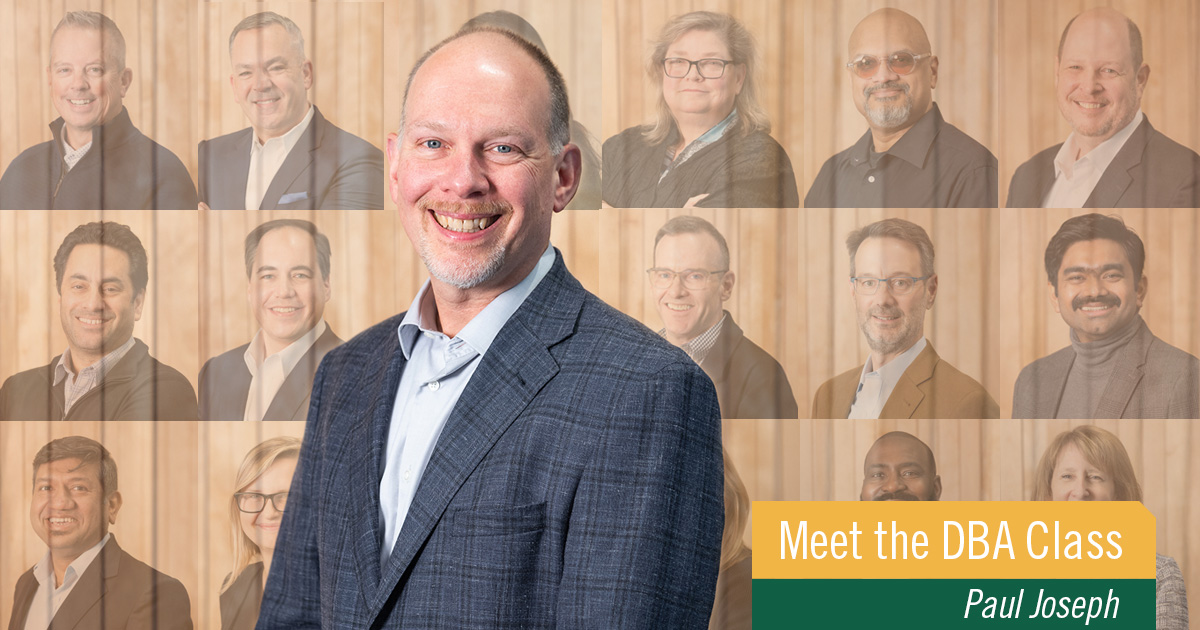Empathy and Active Listening Skills: Why They Matter in Business and How to Do Them Better

Yes, tech may be critical to business. And, yes, it may dominate the economy.
But as much as tech drives seemingly everything, from the office to the markets to our day-to-day reality, those in business can’t lose sight of one unmistakable fact: The human still matters.
Specially, human skills still matter. Listening. Empathy. Understanding. To do business right, one must be able to listen and appreciate where others are coming from.
“Perhaps future technologies will allow us to automate active listening,” says Phillip Kim, chair of Babson’s Entrepreneurship Division and faculty co-director of Babson On-Demand™, part of the College’s Professional and Executive Education portfolio. “Until then, human interactions will still be essential for conveying needs and identifying problems.”

Even if a work task involves, say, an AI program analyzing a data set, empathy is still very much in need, to ask the right prompts of the AI and to shape the results of the analysis into a coherent story so it can be communicated to others.
“There is a human need in the input side and output side,” says Wendy Murphy, associate dean of Babson’s Undergraduate School and a faculty member teaching in Professional and Executive Education.
While the World Economic Forum, in its 2025 Future of Jobs Report, lists technological literacy as an essential skill for the workforce, it also identifies empathy and active listening. Here’s why these human-centric skills remain important and how business leaders and entrepreneurs can get better at them.
Active listening is about engagement, encompassing more than just making eye contact and passively hearing someone’s words. Instead, it involves acknowledging and understanding fully what those words mean, something we don’t always have the luxury of doing. “Given the busyness of daily life,” Kim says, “we often don’t internalize what we hear from conversations and interactions with others.”
To be a good active listener means focusing on the other person, asking them questions, and clarifying what’s unclear. “Active listening involves a little bit of give and take,” Murphy says. “It is an interviewer’s skill set, a leader’s skill set.” In the workplace, active listening techniques are key for co-workers collaborating and creating together.
Combining Empathy and Communication Skills
Empathy is closely related. “It is the ability to understand another person’s thoughts and feelings,” says Murphy, a professor of organizational behavior. “It is a critical skill for putting yourself in another person’s shoes.”
Taken together, empathy and active listening skills are complimentary to each other. “Empathic people are good listeners,” Murphy says. “In order to be an active listener, it helps to have empathy to ask the right questions at the right time.”
“Active listening and empathy are essential skills for entrepreneurial leaders to identify starting points for creating viable business opportunities.”
Phillip Kim, faculty co-director of Babson On-Demand™
For entrepreneurs, who are on the hunt for opportunity, the two proficiencies make for an integral pair. Empathy and listening skills are what’s needed to truly understand the problems people are facing, the problems that entrepreneurs hope to solve one day. “Active listening and empathy are essential skills for entrepreneurial leaders to identify starting points for creating viable business opportunities,” says Kim, the Lewis Family Distinguished Professor in Social Innovation.
How to Improve Active Listening Skills
Given the importance of empathy and communication skills, how does one go about improving them?
For active listening techniques, Murphy recommends practice. That might mean, for instance, taking a backseat during meetings. That’s especially true for leaders. “Let others take the lead on a conversation,” she says. “It is a powerful exercise to let everyone else go first.” By doing so, you can make more informed decisions by hearing the views of others.
In terms of other active listening exercises, Kim recommends taking notes during conversations to improve listening skills, particularly during customer discovery interviews. The very act of taking notes forces you to interact with others in a different and more engaged way. “Immediately after the conversation,” Kim says, “take a few minutes to review and organize your notes to ensure you captured the main points correctly and record any insights that came to mind before moving on.”
How to Build Empathy

As for building empathy, one of the strongest ways to do that is to read. A lot. “I recommend reading widely, both fiction and nonfiction, to understand different perspectives, contexts, and situations,” Kim says.
Kim also recommends placing yourself in unfamiliar social situations. “Stay curious,” he says, “and seek out opportunities to learn from others who come from different cultures, speak different languages, or have different backgrounds from you.”
At Babson, students are directed to go beyond campus, to places such as train stations, coffee shops, and supermarkets, to observe. Entrepreneurs must be able to spot problems and opportunities, so students are told to observe people and try to imagine what is going on in their lives. “Entrepreneurs are good observers,” Murphy says. “They see a problem and dig deeper and ask good questions.”
For leaders, another way to enhance basic empathy skills is to do the job of their front-line employees. For instance, they could work in a call center. “These are empathy-building exercises of getting back to the ground floor,” Murphy says, “learning about customer and employee experiences.”
LEARN MORE about Babson’s Professional and Executive Education portfolio, including live-online, Babson On-Demand™, and blended courses for individuals; leadership development programs for organizations; opportunities for advanced students and educators at Babson Academy; and government leadership programs.
Posted in Insights




